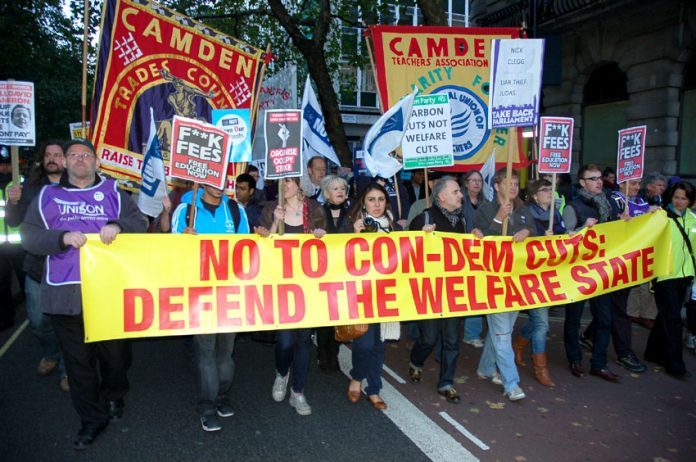
The anger of workers is set to explode at the cost of food, fuel and fares, now soaring to unaffordable levels.
Commuters were infuriated yesterday when they heard the chief executive of the Association of Train Operating Companies (ATCO) defend rail fare increases which average 6.2 per cent and in many cases are much higher.
ATCO boss Michael Roberts said the rises were part of a government policy to make rail passengers pay a greater share of the cost of the privatised railways than taxpayers.
Anthony Smith, Passenger Focus chief executive, said that many passengers ‘will be baffled about why they are paying much higher figures than the “averages” published by the train companies.
‘For many passengers, this flexibility won’t appear fair.’
He warns that ‘in some cases it will be back to the bad old days of double-digit fare increases.’
The watchdog looked at a selection of fares and found that commuters travelling from Canterbury to London will pay 12.7 per cent more for their annual season tickets with prices rising by £488 since January 2010.
In the Midlands, passengers travelling between Gloucester and Birmingham will pay £268 more for their annual season tickets, up 8.8 per cent.
Passenger Focus’s checks of a selection of unregulated fares showed increases of 12 per cent on the Chelmsford to London route with an Off-Peak Day Return going up from £13 to £14.60.
Passengers wanting to travel on an Anytime Return between London and Norwich will pay 14 per cent more with tickets going up from £82 to £93.10.
Tube and bus fares in London have already risen by an average of 6.8 per cent.
Last Saturday fuel duty rose by 0.76p a litre, while tomorrow VAT will go up from 17.5 per cent to 20 per cent.
The combination of both tax hikes will put around 3.5p on the average cost of a litre of unleaded petrol, which has already hit a record high of 124.16p last week – more than 14 per cent on a year ago.
Diesel stands at an average of 128.35p a litre.
Further increases in fuel duties are planned in April, and will lead to big increases in food prices.
A Treasury spokesperson said: ‘Tough decisions are unavoidable and the government has been clear that the burden of deficit reduction will have to be shared.’